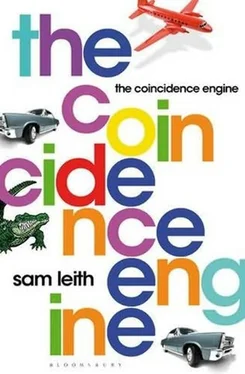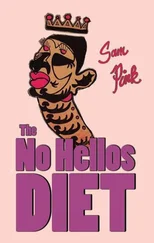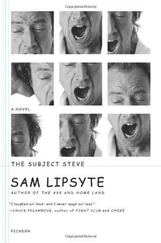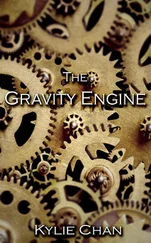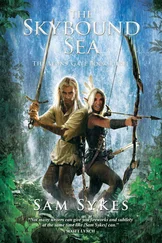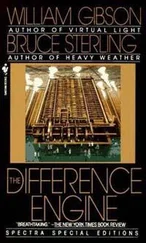‘I don’t follow you.’
‘He was right but he was wrong. Isla Holderness was a spy. But that was a different Isla Holderness. We made a huge mistake. This woman with Banacharski wasn’t our Isla Holderness, and she wasn’t spying on him. It was another woman with the same name. And she’d been buying newspapers completely at random all along.’
Red Queen looked a little bitter about this.
It was hard enough keeping track of all the DEI’s agents, and the organisation’s institutional reluctance to commit anything to paper for fear of being counter-surveilled made it more or less impossible.
Many DEI field agents didn’t even know they were working for the DEI – and a good few of them actually thought they were spying on it for one of the several fictitious cover agencies that it ran. Red Queen occasionally pretended to be unsure whether the DEI was a real organisation or, itself, a red herring.
Hands looked mystified. ‘So where was your Isla Holderness while the other Isla Holderness was with Banacharski?’
‘Thousands of miles away in a cave network in northern Pakistan,’ said Red Queen, gloomily. ‘She had spent the previous three years infiltrating with unprecedented success – not that we knew about how she was getting on at the time, since we’d forgotten she was there – bin Laden’s inner circle.’
‘What?’ said Hands. ‘ Osama bin Laden? The terrorist?’
‘No,’ said Red Queen, brightening up a bit. ‘As it turned out, not.’
The car was a box of smoke. It pulled into the parking lot of the International House of Pancakes where Bree had made the rendezvous and stopped in the rank of parking spaces across from where she was waiting in the shade of a tree.
Through the windshield, Bree could see nothing. It was like a white-out in there. The driver’s-side door opened, and the car exhaled – a roll of what looked like dry ice furling out under the door and dissipating above the hard top. A hand, holding a cigarette, gripped the edge of the roof. A foot – a giant foot, like a beached canoe – appeared under the edge of the door, and a very tall man scissored out and stood upright, looking around, as the smoke cleared.
Bree reckoned he was about six foot three. He had a thin face, and short pale grey hair. She walked up with a hand in her pocket, and she could see his attention register her.
He put the cigarette in his hand into his mouth and pulled on it very heavily.
‘Hello,’ he said, without taking his sunglasses off. ‘I’m Jones.’
‘Bree.’
They didn’t shake hands, though an awkward moment passed when they could have. They stood opposite each other in the hot parking lot, and even from this distance Bree could smell the smoke on him. There was a parchmenty greyness, close up, to his skin. It was like wasp paper under his eyes.
He indicated the car with a gesture of his arm. ‘This is my… wheels.’
He looked oddly pleased with himself.
Bree had been told a little about Jones. She still didn’t understand it, not exactly, but she was comfortable with that. Red Queen had said only that Jones’s ‘condition’ was going to be an advantage in the hunt – and that Bree shouldn’t be disconcerted if he seemed a little eccentric. Bree had, in her time, spent days staring earnestly into crystal balls alongside people who, in Brooklyn accents, assured her that they were 500-year-old Mittel-European Gypsies. She had a wide tolerance for the eccentric.
She guessed she’d find out about Jones as they went along; provided she didn’t asphyxiate first.
‘Jolly Rancher?’ she said.
She held out her hand, and the thought came to her momentarily that she might have been pulling a dog biscuit from her pocket. Jones looked at it, and paused as if confused.
‘Yes – please,’ he said.
He took one of the little candies from her hand. Bree noticed with satisfaction that it was the peach flavour, which was the only one she hated. Jones unwrapped it fastidiously. He removed the cigarette from his mouth, popped the Jolly Rancher in, and replaced the cigarette.
‘Thank you,’ he said.
Bree took one of the green-apple flavour, and after a moment or two they climbed into Jones’s rental car and they slammed the doors and Bree wound down her window and Jones pumped the air conditioning to full and lit another cigarette and then they drove out of the IHOP parking lot and into the world.
Alex’s mental fug lasted most of that evening. He had watched pinky faces on CNN until he had got bored, then he’d turned over to the orange faces on Fox News, then – briefly – the BBC, where he didn’t know whether it was the familiar rust-coloured graphics or the familiar green-yellow face of the correspondent standing by the railings in Downing Street that made him feel homesick.
Then he flipped again, to a show called I Want a Million Dollars NOW! . Some girls in bright swimsuits were screaming at each other.
He had noticed that the wall of his room, by the door to the bathroom, had a bottle opener fixed to it with screws. So you could lever the crown top off a bottle of beer, presumably, before you took it into the toilet to settle in for a shit.
Alex didn’t have a bottle of beer. There was a little plasticky coffee-maker on the table by the television, though. He had plugged the two-pin plug in, filled the glass pot awkwardly from the shallow sink, filled the coffee-maker’s reservoir from the pot, replaced the empty pot on the hotplate. Beside it there was a plastic basket designed, apparently, to fool the passer-by into thinking it was made out of bright blue wicker. He had picked up the heat-sealed plastic envelope that said ‘Coffee’, and torn it open. It contained, apparently, a giant tea bag full of coffee, some of which had spilled out of the torn tea bag onto the table.
He had picked up the other plastic envelope, a paler brown, which contained the decaf. He had liberated the giant tea bag intact this time, smoothed it into the round space for it in the top of the coffee-maker, flipped the hinged holder so it sat back over the pot. Then he had replaced the two-pin plug, which had fallen out of its slot. Then he had flipped the switch on the base of the coffee-maker so it glowed orange, and waited for the machine to cough and splutter to a natural death.
Then he had unsheathed one of the two white styrofoam cups from its plastic wrapper, poured the scalding caramel-coloured coffee into it, waited for it to go cold, then drunk it.
Now he had run out of things to do.
Alex had never been to America before. Having set out with a sense – now, he saw, entirely bogus – of purpose and adventure, he felt suddenly small and pathetic and alone.
In his imagination, it had been a vector transformation. Going to America would, necessarily, make him equal to the setting. America, far away, looked big: he would become big as he travelled towards it. America, close up, was enormous. And he, travelling towards it, had become even smaller. He imagined himself labelled ‘Shown actual size’.
There was an entire country out there to be seen, and he couldn’t bring himself to leave his motel room even to eat. How hard could it be to walk round the corner and get a pizza, or go to a bar? He knew he was exacerbating things by inactivity. He felt low enough to do nothing but not so tired that he could go to sleep. Now the numbness was fading, the pleasurably dismaying shock of simply not doing what he intended and expected to, he found it hard to put the wasted cost of the flight out of his mind.
And while he sat here his mind was moving, never quite settling, on a survey of his situation. He was twenty-four years old. The most important thing in his life, for three years, had been a PhD that his gut told him he wouldn’t finish. Now it was a girl whom his gut had told him that he would marry, and in marrying whom, his gut told him, he would change his life. Now his gut had vanished. He was gutless. He looked down, miserably, at his gut, as if he imagined someone was watching whom he ought to impress with his wryness if not his resolution.
Читать дальше
